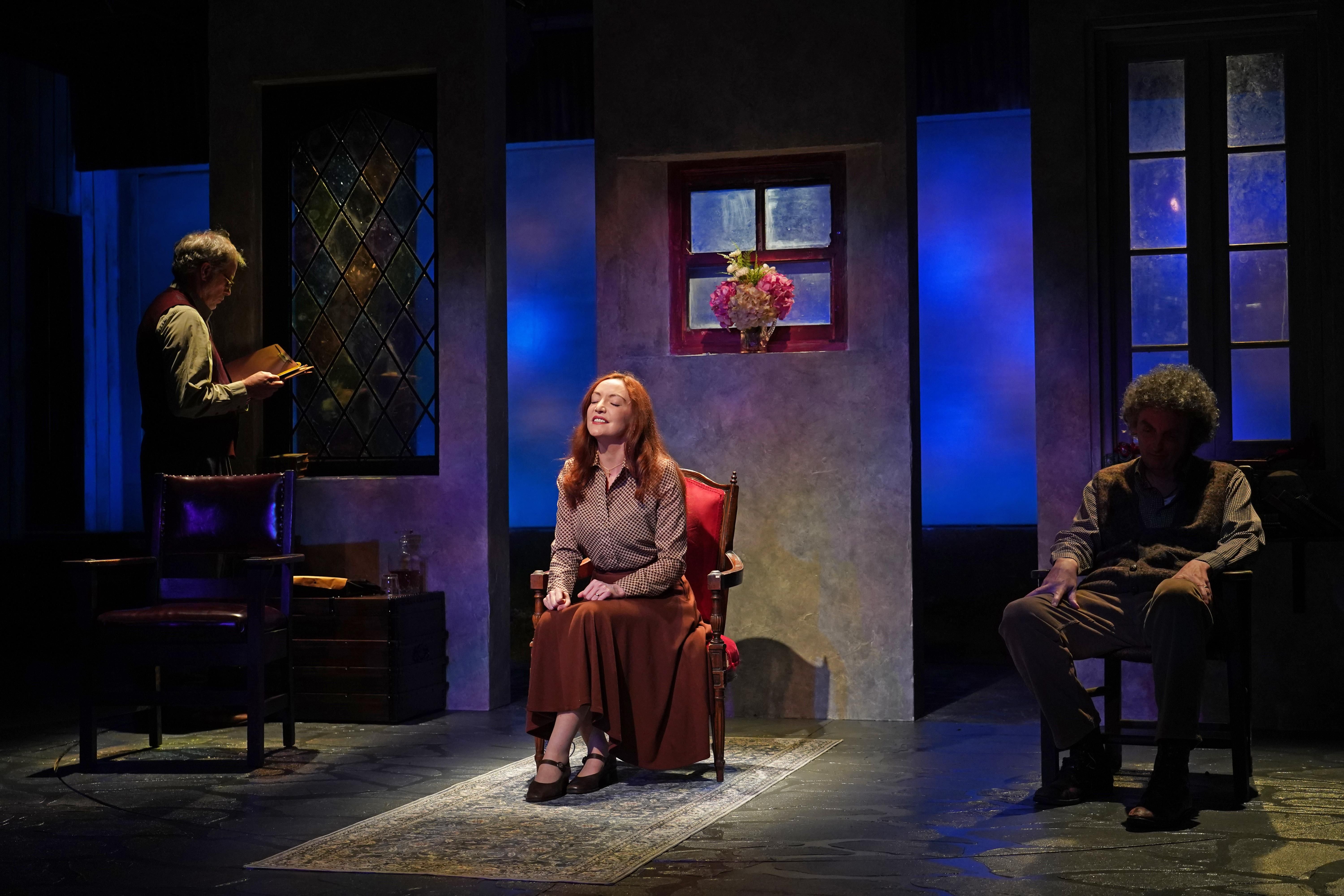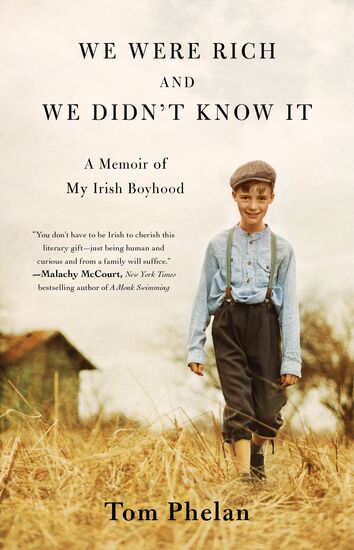Depicting disability onstage is often an endeavor rife with disappointment.
With centuries of performance tradition built on a foundation of excluding and demonizing disabled persons (one need look no further than the canon of Shakespeare to witness how physical deformity was used as a shorthand for evil), many 20th century dramatists attempted to course correct with a form of inspirational sensationalism that continues to negatively impact disabled persons to this day.
This perverse inversion of purpose, which sees the lived experience of a disabled individual distilled down to a palatable source of abled inspiration, is upended by Brian Friel’s “Molly Sweeney,” now on offer at the Irish Repertory Theatre through June 30 as a part of their successful Friel Project. Ostensibly a series of monologues detailing three perspectives surrounding the titular character’s attempt to regain her sight, in the hands of director Charlotte Moore and actor Sarah Street, the piece is a rare light of understanding from an abled playwright.
Street, previously seen in Irish Rep’s second production of the Friel Project, “Aristocrats,” brings a gentle steadiness to Sweeney. “With Friel, it’s all there,” she shared, nestled at home the day after the production's first preview performance. “It’s such a pleasure to sit with his work this season.”
Moore first approached Street about the project during a post-final show “Aristocrats” gathering, taking Street by surprise. “I’d cleared out my station, and had this case,” Street said, referring to the large suitcase that allowed her to transport her dressing room accoutrement back home.
“She asked if I was flying back to Ireland, with this stricken look.” Once Street’s continued residence in New York had been established, the plan began to take shape: extending the Friel Project with an additional fourth production, starring Street and two other alums of the series, Rufus Collins and John Keating.
Written by Friel in the early 1990s, “Molly Sweeney” centers on a woman, blind since infancy, who undergoes an operation to try to restore her sight at the behest of her crusading husband Frank and her down-on-his-luck surgeon Mr. Rice. Throughout the process, it was important to Street that Molly not come across as a victim to her disability.
“Molly is no victim. Her life isn’t missing something, due to her blindness. There is a monologue in the first act, it’s the final party before her operation, and the way she interacts with everyone is so beautiful,” Street recalled, her eyes alight. That sequence, which Street carries off beautifully with little more than the tilt of her head and the roll of her shoulder, taps into a fierce fury that underpins the lived experience of many disabled individuals.
The concept that a disabled individual must yearn to be “cured” (or rather, yearn to adhere to able-bodied standards) is pervasive. Peddled by the non-disabled since time immemorial, the ever-shifting standards of normalcy enter an even starker relief when leveled against a disabled woman, forced to shoulder each cultural burden with compulsory ease.
“She has a full life before she leaves it behind, for Frank,” Street said, referring to the vivid depiction of Molly she inhabits prior to the operation. “If left alone, I don’t think she would have ever had the operation. But to be a woman in Ireland at that time, married to a man like Frank, what choice did she have?”
Throughout the first half of the piece, Friel’s gossamer depiction of Molly’s interior life captivates in contrast to the bleak reality of surgeon Mr. Rice’s isolated existence, or Frank’s meandering search for meaning. The same party monologue crests upon Molly’s explosion of contained energy, wherein she dances with fierce abandon throughout her home as others look on with horror at her abandonment of decorum. Steady and sure of herself and the environment she knows inherently, she comes to no harm, but in the eyes of her abled friends and family, her expression of absolute confidence was terrifying. Her coercion into abandoning her unique experience of the world in favor of their best intentions is an all-too-familiar pattern for the disabled and those close to them.
“Learning to move in her world was a fascinating challenge,” Street revealed. “So much with her hair… how do you move it, when you don’t see it? Her tactile sense of herself, and just gently–” Street demonstrated, her fingertips gliding across her collar bones before brushing an errant tendril of hair behind her shoulder “–moving, rather than all the fussing we do. Or how she speaks about swimming, the sensation of it. She had something unique.”
In less capable hands, Molly’s unique perspective could have been peddled as yet another hollow vessel for inspiration on behalf of abled individuals, but from Friel’s pen, her exile from her disabled world is nothing short of a tragedy. As Street reflected on the harm Molly’s supposed “cure” did, she can’t help but think of the blind individuals she now encounters on a near-daily basis.
“They must have always been there, but now, I see them everywhere, on the street, on the bus,” she said. “They live their lives beside mine, but it took ‘Molly Sweeney’ for me to really see them.”
Click here for information about tickets.








